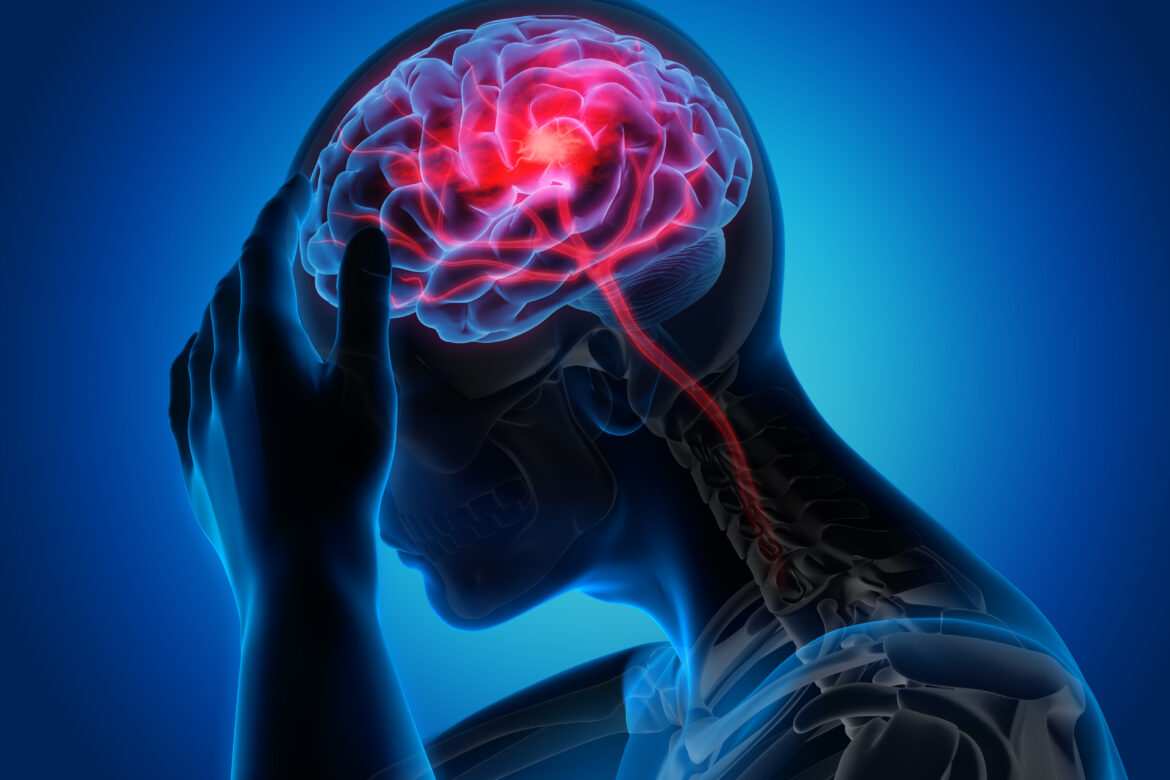Post-traumatic headache (PTH) is a common and often debilitating condition that can develop after traumatic brain injury (TBI). Despite significant research efforts, the exact mechanisms and risk factors for both acute and persistent PTH remain under-explored. However, observational studies have identified several factors that may increase the likelihood of developing PTH. Understanding these risk factors is crucial for early identification, prevention, and management of PTH in individuals with TBI.
1. Age and Gender
- Age ≤ 60 Years: Studies indicate that individuals aged 60 and younger are more likely to develop PTH, particularly after mild traumatic brain injury (mTBI). The younger population may be more prone to acute and persistent headaches due to the heightened neuroplasticity and vulnerability of the brain following injury.
- Female Sex: Women are at a higher risk for developing PTH compared to men. Several studies have suggested that hormonal differences, particularly fluctuations in estrogen levels, may contribute to increased susceptibility to headaches post-injury. Females also exhibit a higher prevalence of vestibular-ocular symptoms, including headaches, after TBI.
2. Type and Severity of TBI
- mTBI (Mild TBI): Mild traumatic brain injuries are more likely to result in PTH compared to moderate or severe TBIs. The subtle but significant disruptions in brain function caused by mTBI often go unnoticed, making it challenging to treat early symptoms effectively. Multiple occurrences of mTBI, especially those with loss of consciousness, further elevate the risk of persistent headaches.
3. Pre-Existing Headaches and Prior TBI
- History of Prior Headaches: Individuals with a history of pre-existing headaches, such as migraines, are more prone to develop PTH following a new injury. The presence of pre-existing headache disorders may exacerbate the severity and frequency of post-traumatic headaches.
- History of Prior TBI: Those with a history of TBI, particularly if they have suffered from PTH or other post-concussive symptoms in the past, are at an increased risk for developing PTH after subsequent injuries. Recurrent TBIs can lead to cumulative damage, which heightens the likelihood of persistent headaches.
4. Blast Mechanism and Loss of Consciousness
- Blast Mechanism: Head injuries caused by a blast mechanism, commonly seen in military personnel, are associated with a higher incidence of PTH. The complex interaction between the pressure wave of a blast and the brain may cause unique types of damage leading to persistent headaches.
- Loss of Consciousness (LOC): Individuals who experience LOC during the initial injury, particularly as a result of a blast, are more likely to report headaches. The severity of the concussion is often linked to the duration of LOC, with longer periods associated with more severe post-traumatic symptoms, including headaches.
5. Psychiatric Comorbidities
- PTSD and Depression: Psychiatric conditions such as post-traumatic stress disorder (PTSD) and depression have been strongly linked to the development of PTH. The psychological burden and emotional distress caused by traumatic events often manifest as physical symptoms, including headaches. Studies suggest that treating comorbid psychiatric conditions may alleviate the intensity and frequency of PTH.
6. Additional Factors
- Post-Traumatic Migraine Symptoms: Early symptoms resembling migraines, including nausea, light sensitivity, and throbbing pain, are indicative of a higher risk for developing PTH. These symptoms may persist and evolve into chronic post-traumatic headaches if not addressed early.
- Insomnia and Sleep Disturbances: Individuals with sleep issues, including insomnia, are more likely to suffer from persistent headaches after TBI. Sleep disturbances often exacerbate other post-concussive symptoms and hinder recovery.
- Vertigo and Somatic Pain: The presence of vertigo and other forms of somatic pain following a TBI can further complicate the recovery process and contribute to the persistence of headaches. Individuals reporting such symptoms may need tailored interventions to prevent chronic PTH.
The following table summarizes the key risk factors for developing post-traumatic headaches:
| Risk Factor | Description |
|---|---|
| Headache at Injury | Early post-injury headaches or a prior history of headaches increase the risk of persistent PTH. |
| Female Sex | Women are at higher risk for PTH, likely due to hormonal factors and increased susceptibility to migraines. |
| Pre-existing Conditions | Pre-existing headaches, such as migraines, elevate the risk of developing PTH after TBI. |
| Blast Mechanism | Blast-related TBIs, particularly with loss of consciousness, are linked to a higher risk of PTH. |
| Multiple mTBIs | Repeated mild TBIs, especially with loss of consciousness, increase the likelihood of persistent headaches. |
| PTSD and Depression | Psychiatric conditions like PTSD and depression are strongly associated with the development of PTH. |
| Post-Traumatic Migraine Symptoms | Early migraine-like symptoms post-injury are predictive of chronic PTH development. |
| Insomnia | Sleep disturbances, such as insomnia, are linked to an increased risk of chronic headaches. |
| Vertigo | The presence of vertigo post-injury is associated with persistent PTH. |
| Older Age | Older individuals may experience PTH more frequently, although younger individuals also remain at risk. |
| Somatic Pain | Generalized somatic pain, particularly following TBI, may contribute to the persistence of headaches. |
Conclusion
Understanding the various risk factors for post-traumatic headache is essential for early intervention and effective management. Screening individuals for these risk factors—such as age, gender, history of prior headaches, and psychiatric comorbidities—can help healthcare providers identify those at greater risk for developing persistent PTH. Tailoring treatment to address these underlying conditions may improve outcomes and reduce the long-term burden of post-traumatic headaches.

